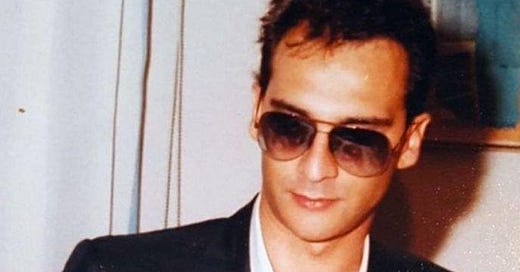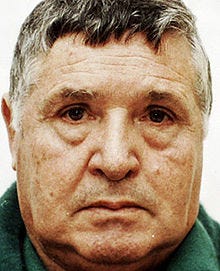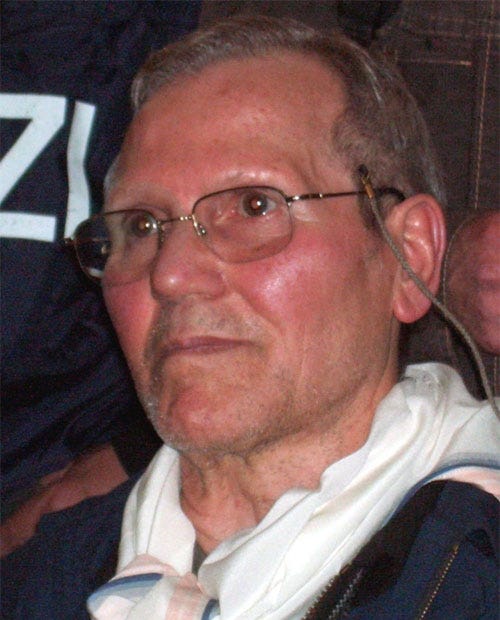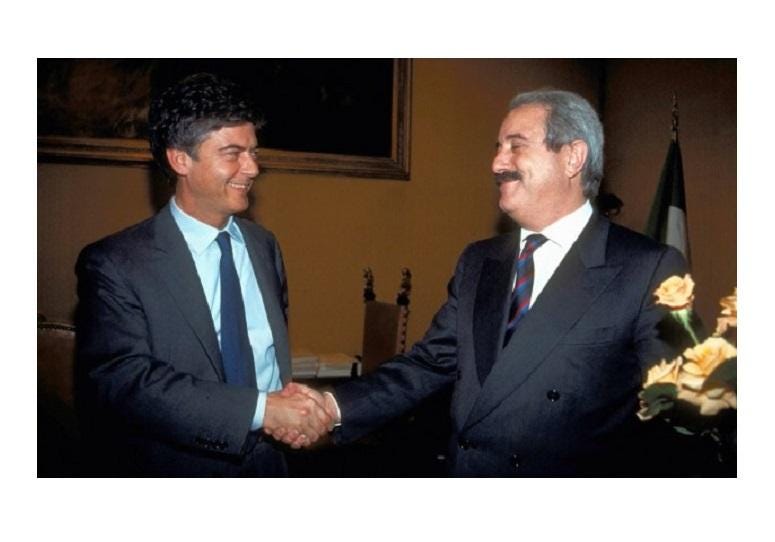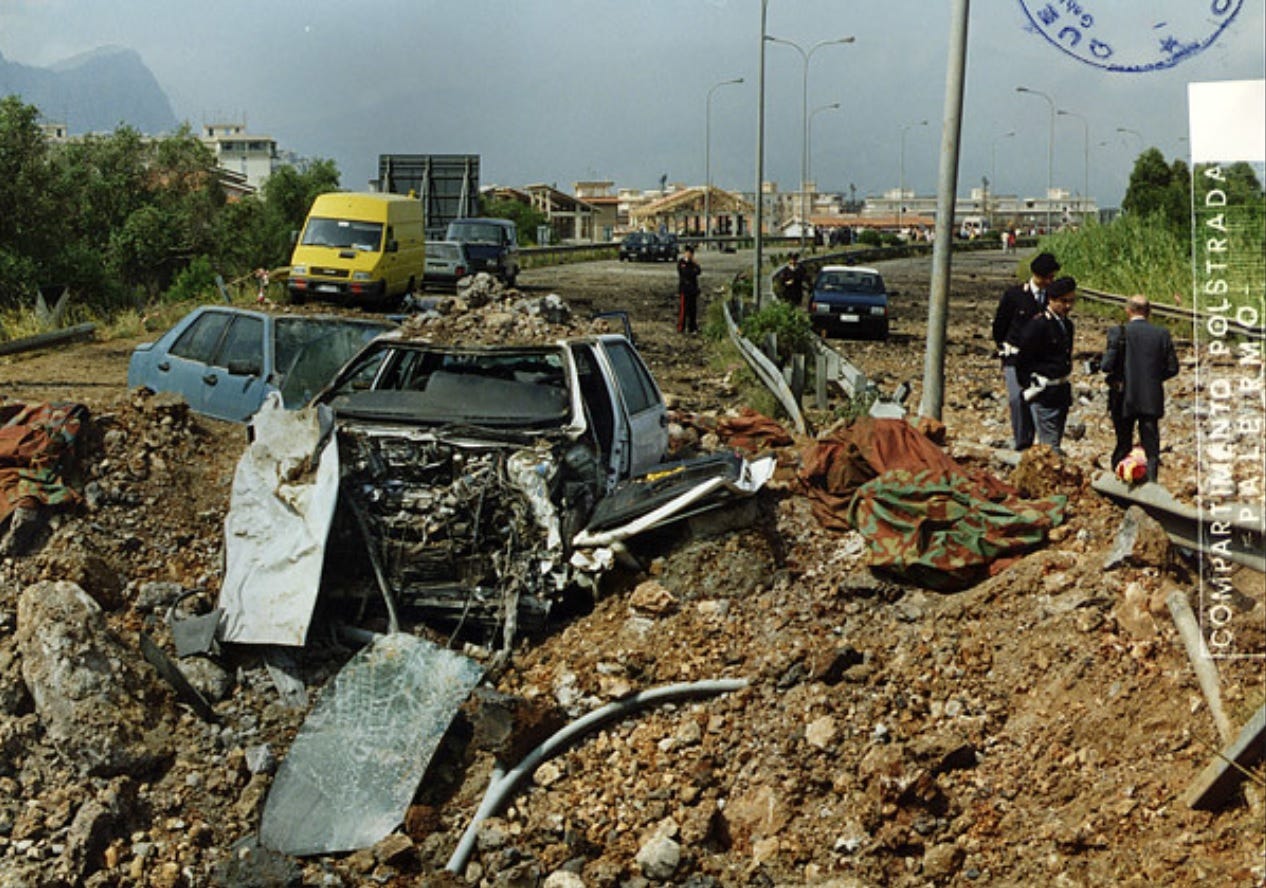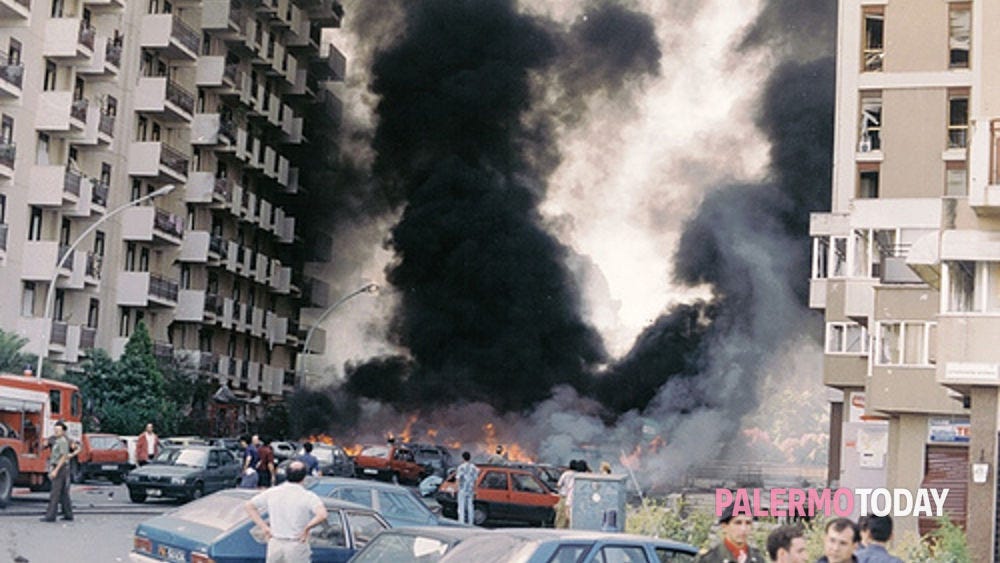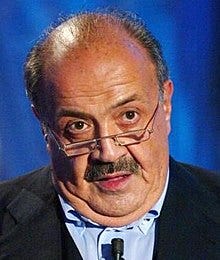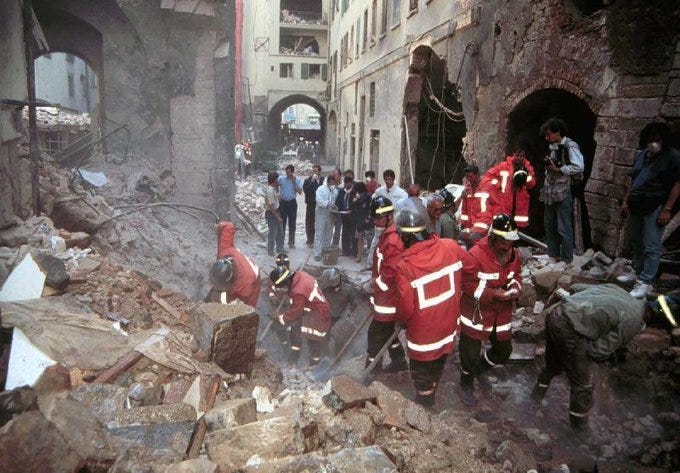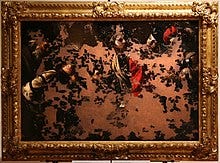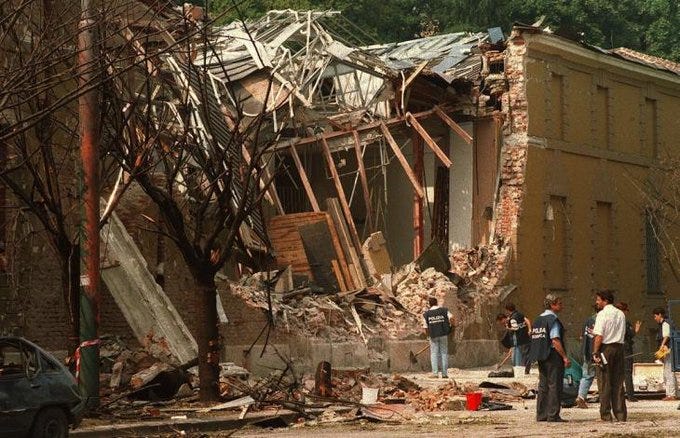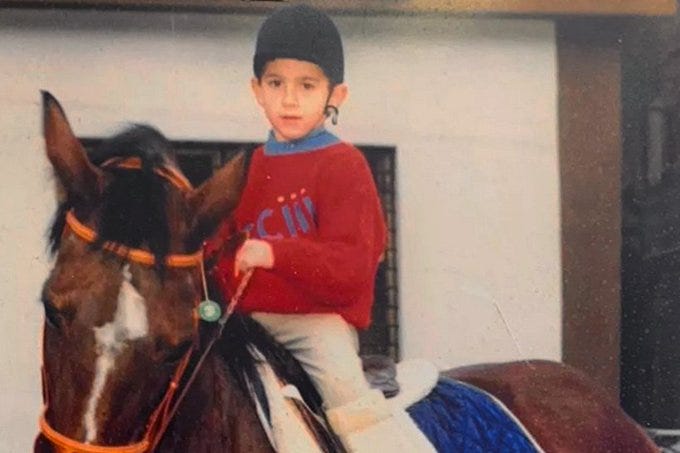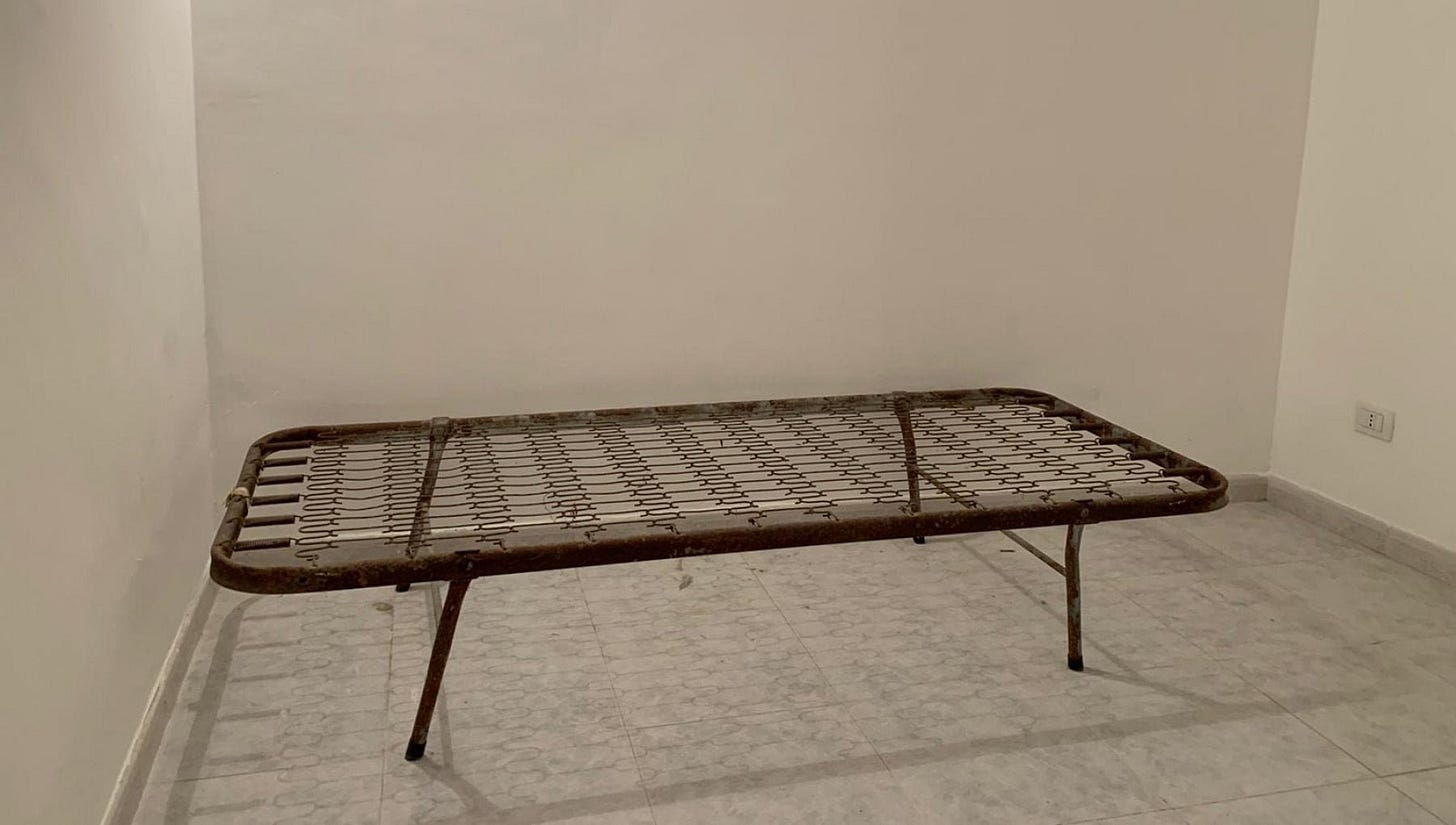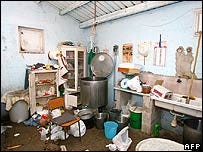The arrest of Matteo Messina Denaro represents a watershed in the history of the fight against Cosa Nostra. He was the last major player from Totò Riina’s Corleonesi clan, which brutally took power in Cosa Nostra in the mafia war of the 1980s, still absconding from justice. His capture helps the process of healing the wounds inflicted on the Italian state by the bombing campaign of 1992-1993, in which he actively participated, especially following Riina’s arrest on 15 January 1993 (30 years and 1 day before his own).
Here I reflect on the role Messina Denaro played within Cosa Nostra, some of the crimes he committed, how he managed to evade capture for 30 years and what will happen now that he is finally locked up.
Messina Denaro’s activities within Cosa Nostra
The first point to make clear is that Matteo Messina Denaro has never been the “boss of bosses” in the way that Totò Riina was until his arrest in January 1993. Riina presided over the Commission or “cupola” that governed Cosa Nostra with an iron fist and Matteo’s father Francesco sat on the body, representing the Province of Trapani.
Matteo replaces his father after the latter’s death in 1998, with Bernardo Provenzano now having taken over from Riina, and remains even after Provenzano’s arrest in 2006. However, he can never aspire to heading the Commission because, as mentioned by the Chief Public Prosecutor Maurizio De Lucia in the press conference following Messina Denaro’s arrest, the head of Cosa Nostra is by custom from the Province of Palermo, while Messina Denaro is from Castelvetrano in the Province of Trapani. Moreover, following the arrest of Provenzano, the Commission and organisation as a whole has been so considerably weakened by continual arrests that it has lost a great deal of its cohesion and has returned to being governed by individual clans on a provincial or local basis.
Messina Denaro’s role in the 1992-93 bombing campaign
Initially, in February 1992, Riina sends a group to Rome with the task of killing Giovanni Falcone and Justice Minister Claudio Martelli. As well as Messina Denaro, this group includes Giuseppe Graviano, Vincenzo Sinacori, Lorenzo Tinnirello & Cristofaro Cannella, all armed with kalashnikovs procured by Messina Denaro. Then, Riina suddenly orders them back to Palermo as he has changed his plans. At that stage they would already have killed Falcone but for the mistaken name of a restaurant. They were informed that Falcone frequented a restaurant called "Amatriciana"; in fact, it was "Il Carbonaro".
Riina’s change of plan comes about when he decides that the elimination of Falcone should take place in Sicily and should be carried out in spectacular fashion, so as to demonstrate the power of Cosa Nostra and directly challenge the state on the organisation’s home ground. He gives the job of organising the attack to Giovanni Brusca, who selects a team. Messina Denaro is not part of this team and is not directly involved in the attack at Capaci on 23 May 1992.
Nor does he play a significant part in the planning and execution of the attack in via D’Amelio on 19 July of the same year that kills Paolo Borsellino. This is probably due to Brusca preferring to use men closer to him. For this reason Messina Denaro has only recently gone on trial for his, albeit marginal, role in these events, being sentenced in absentia to life imprisonment in October 2020. The Appeal trial is ongoing. Indeed, on 19 January, three days after his arrest, there was a hearing in this trial but Messina Denaro chose not to show up.
After Riina’s arrest in January 1993, Messina Denaro takes on a more active role, participating in a series of meetings held between January and April of that year to plan the continuation of the terror campaign to destabilise the Italian state. Various hypotheses are discussed, including those of an attack to cause the collapse of the Leaning Tower of Pisa and leaving infected syringes on beaches in Rimini or other popular resorts to spread public panic. In the end, four bomb attacks are carried out; Messina Denaro has been convicted and sentenced to life imprisonment for all of them.
The first bomb attack of 1993, on 14 May, in via Fauro in Rome, is aimed at TV chat show host Maurizio Costanzo, noted for his antimafia stance, often hosting Giovanni Falcone on his programme. The car bomb explosion leaves Costanzo and his wife Maria De Filippi, also a TV show host, uninjured, as Salvatore Benigno, the mafioso who detonates the bomb, does so a fraction too late, but 24 other people in surrounding buildings suffer injuries and damage is extensive
Just after 1 a.m. on 27 May 1993, a car bomb explodes in via dei Georgofili in central Florence. The explosion causes the collapse of the Torre dei Pulci and the death of 5 people, 4 of whom are members of the family of the caretaker of the Tower. 48 people are injured.
In addition several paintings in perhaps Italy's most famous art gallery, the Uffizi, adjacent to the explosion site, are badly damaged, some beyond repair. Fortunately, protection glass avoids damage to the most important works, but the shock felt in Italy is considerable
At 11.15 p.m. on 27 July 1993, in via Palestro in Milan, a car bomb kills 5 people, injures 12 & seriously damages the Contemporary Art Gallery. The dead are a policeman & three fire officers inspecting the car from which smoke was rising and a homeless man sleeping on a bench.
The same night, just a few minutes after midnight, two car bombs explode in Rome, one near the Basilica of San Giovanni in Laterano & another near the Church of San Giorgio in Velabro. Nobody is killed in these attacks but 22 people are injured.
A final devastating bomb attack is planned for Sunday 23 January 1994, at the Olympic Stadium in Rome, where Roma are playing Udinese. The intention is to detonate the powerful device, planted in a Lancia Thema and packed with pieces of metal and bolts to cause maximum carnage, when a coach carrying Carabinieri arrives, just as fans are leaving the stadium. By a miracle, the remote control malfunctions.
As an aside, Silvio Berlusconi and his right-hand man Marcello Dell’Utri are still under investigation for allegedly having played a role in the bombing camaign of 1993; the suspicion is that the climate of instability created by the terror campaign would favour Berlusconi when he announced his entry into politics, an announcement made just three days after the failed bombing at the Olympic Stadium. However, that is another story and will be the topic of another piece.
The horrific case of Giuseppe Di Matteo
Perhaps the most notorious case in which Messina Denaro is involved is the kidnapping and muder of Giuseppe Di Matteo, aged just 12 when he is abducted on 23 November 1993. Again, Messina Denaro’s role is not operational; he is convicted of ordering the abduction, along with other members of the Commission, and of the murder because he knew that this was a probable outcome.
Giuseppe Di Matteo is held hostage in an attempt to force his father, Santino Di Matteo, from continuing to cooperate with investigations, especially into the Capaci attack, in which he played a significant part. He is kept captive for over two years, being moved between various localities in the Provinces of Trapani, Agrigento and Caltanissetta. In the summer of 1995, he is transferred to a house used by Giovanni Brusca in San Giuseppe Iato and spends the final months of his life in complete darkness in a bunker-cellar accessible only by hoist. When his father’s continued cooperation leads to Brusca’s conviction for murder, on 11 January 1995, just 8 days short of Giuseppe’s 15th birthday, Brusca himself orders the boy be strangled and his body dissolved in a tub of nitric acid. Giuseppe was held hostage for 779 days.
While the cases mentioned above see Messina Denaro convicted for ordering murders, rather than materially committing them, he is willing to “do the dirty work” as well. As mentioned previously, he fully intended to murder Giovanni Falcone and Claudio Martelli in Rome, and was one of those directly responsible for murdering Vincenzo Milazzo, boss of Alcamo, who was showing signs of rebelling against Riina, in July 1992. A few days later he brutally strangled Milazzo’s partner Antonella Bonomo, even though she was three months pregnant.
30 Years in hiding
Cosa Nostra is gradually weakened by the continual arrests of its leading members, with Bernardo Provenzano’s successor, Salvatore Lo Piccolo, meeting the same fate just a year after Provenzano, in 2007. At this point, Messina Denaro remains the most prominent boss still at large, but the organisation is by now beginning to lose its cohesiveness and the lack of a powerful figure from the Province of Palermo to head the Commission means this organism basically ceases functioning. Thus, the organisation becomes much looser, with command and control reverting to a provincial or local level. This leaves Messina Denaro in a dominant position in the Province of Trapani and part of the neighbouring Province of Agrigento and it is thanks to this control of the territory that he succeeds in evading arrest for so long.
To get an idea of just how much control Messina Denaro has had over the economy of the Province of Trapani (one of the poorest in Italy), you need only look at the list of assets, worth more than €4 billion that have been seized over the last 20 years. From these, it can be seen that Messina Denaro’s business interests have ranged from supermarket chains to wind farms, holiday resorts and hotels, art works, archaeological artefacts, even care homes for the elderly. All of these assets have been managed by well-known business people, demonstrating the boss’s ability to infiltrate the economy. These, for instance, are the three largest seizures carried out against local businessmen used by Messina Denaro as “prestanomi”:
Giuseppe Grigoli €700 million: 12 companies, 220 properties, 133 plots of land;
Vito Nicastri €1.5 billion: numerous wind farms;
Carmelo Patti €1,5 billion: several holiday resorts, a 21m yacht, a golf course, 232 properties, 25 companies.
There have been countless other seizures for lesser sums, as the state has implemented a “scorched earth” policy in an attempt to starve Messina Denaro of funding and support. As well as figures in the business world, innumerable arrests have been carried out over the years of local politicians, state officials, even police officers and prison guards, who have, in one way or another, facilitated Messina Denaro’s activities.
Despite having been part of Riina’s and Provenzano’s mafia, Messina Denaro is a very different character. Riina and Provenzano were not captured wearing a coat worth €10,000 and a watch worth €35,000. As yet, we have no pictures of the inside of Messina Denaro’s hideout, but it is said to be luxurious. In contrast, just look at the photo below of Provenzano’s hideout after his arrest.
As one journalist put it, Messina Denaro was more interested in himself than in Cosa Nostra.
Inevitably, after it emerges that Messina Denaro has been hiding in a small town of 11,000 inhabitants, people ask how it is possible that nobody recognised him or realised who he was. There is no simple answer to this; it is a mixture of fear, misplaced loyalty or gratitude and distrust in the state.
Through his control of the local economy Messina Denaro has been in a position to hand out jobs, business opportunities and benefits of all kinds, earning gratitude and silence. People look the other way because they cannot trust the state to protect them. In an interview in 1991, Giovanni Falcone said, "… we need to recognise that the mafia is a terribily serious phenomenon and it won’t be defeated by expecting acts of heroism from defenceless citizens, but by bringing the full force of the institutions to bear in the battle."
Excerpt from interview with Falcone
Capture and Imprisonment
When Messina Denaro is captured on the morning of 16 January 2023, it doesn’t take long for the “conspiracy” theories to start circulating. “It’s all staged”; “he’s giving himself up to get better medical treatment”; “Cosa Nostra is getting rid of him because he’s become a liability.” These may be natural reactions to the arrest of someone who seemed to be immune to capture but they are nonsense. Messina Denaro has been captured thanks to intensive, prolonged investigations.
Undoubtedly, the fact that he has a serious illness that requires long-term medical treatment means that he has had to take more risks and he may have become more careless as his sense of self-importance fed feelings of invincibility. At the end of the day, however, his capture is the result of hard police work and is an important victory for the Italian state. The positive psychological impact of seeing his mugshot, 30 years since the last one, is incalculable.
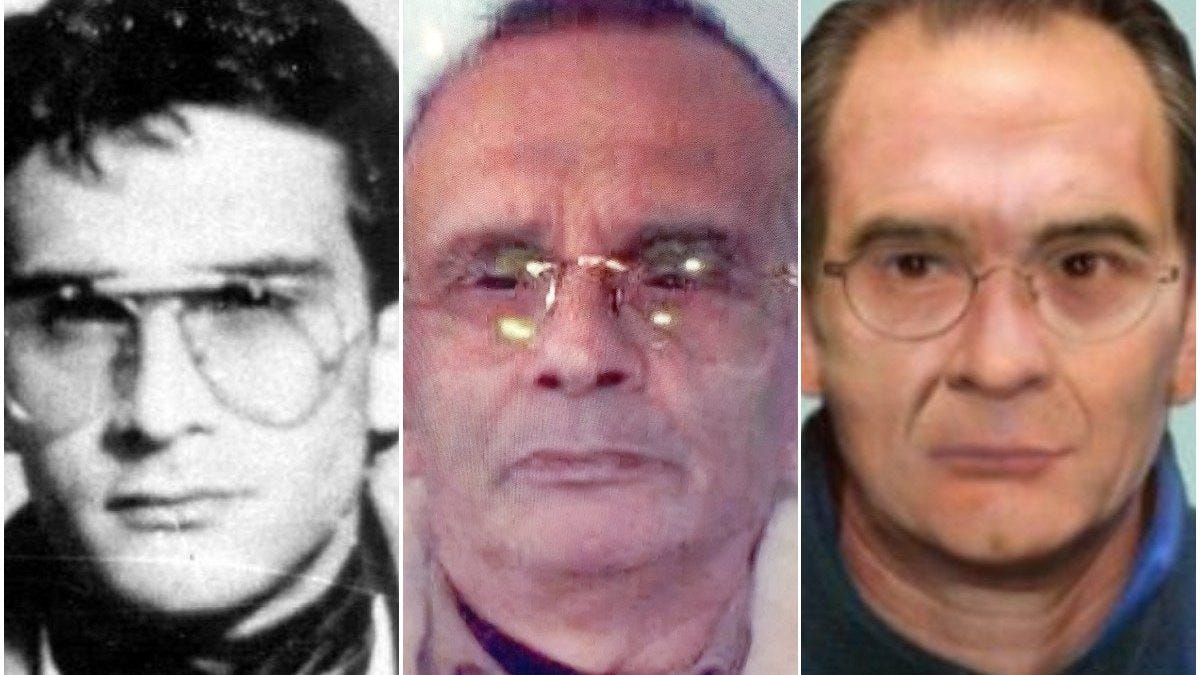
Of course, the question that is on everybody’s lips now is, “will he talk?” He may be the last chance we have of discovering who was part of the so called “third level” behind the bombing campaign of 1992-93. Those materially responsible and those in Cosa Nostra who ordered the campaign have largely been identified and punished; those within the institutions of the Italian state who shared the aims of destabilisation and in some way facilitated the campaign still lack names and faces.
The answer to the question is “highly unlikely.” Whatever his actual weight within Cosa Nostra, he considers himself to be a boss on the level of Riina or Provenzano and a boss of that calibre does not cooperate with the authorities. Having said that, as mentioned above, Messina Denaro enjoys living in luxury, buying and surrounding himself with beautiful things, very unlike Riina and Provenzano. It will be a shock to end up in prison, moreover under the strict art. 41-bis régime. While the principal aim of this régime is to isolate mafia bosses from their organisations and territories, it also puts the inmate under undoubtedly strong psychological pressure to cooperate.
These are the main provisions of the special régime:
Solitary confinement in a cell roughly 10m² containing a bed, chair & table bolted to the floor & its own bathroom. There is a TV bolted to the wall on which the prisoner can watch only the main national channels;
There is no privacy. The prisoner is subject to 24h surveillance;
Out-of-cell time is 2 hours per day. During this time any activity undertaken is in a group of max. 4 people. No physical contact is allowed. For bosses of Messina Denaro's calibre this rule is sometimes tightened to allow socialising with just 1 other prisoner.
One visit per month of 1 hour, only from family members, separated by a protective screen, communicating by intercom. Conversations are monitored. These rules can be relaxed for children under 12 and do not apply to visits from lawyers;
All correspondence is censored (except with lawyers & MPs);
Severe resrictions on the number and type of articles that can be received from the outside;
Prisoners under 41-bis can receive & spend max. €500 per month (€150 per week) on food, cigarettes, newspapers & magazines and other articles sold inside the prison. They can buy national newspapers but not local ones from their home territory.
Guards in the 41-bis section have no contact with guards or prisoners in the rest of the prison.
So. perhaps a few months, or years, under these conditions will soften Messina Denaro’s attitude. Maybe, but there are other factors to consider.
Laws inspired and promoted by Giovanni Falcone himself allow mafia bosses to be released early if they fully and loyally cooperate with investigations. He rightly held that you have to offer them some prospect of release and a relatively normal life if you want to tap their knowledge in order to aid the struggle against the mafia. Even Giovanni Brusca, who detonated the bomb that killed Falcone and ordered Giuseppe Di Matteo be strangled and dissolved in acid, was released in 2021 on this basis.
Messina Denaro, however, is 60 years old and seriously ill, currently undergoing chemotherapy. Even if he were to survive his illness and fully cooperate, he would be in his mid to late 80s before becoming eligible for release. He will likely decide that “Il gioco non vale la candela.”
Most probably, he will stay locked up and largely forgotten about until we get reports of his death.
